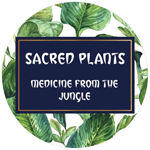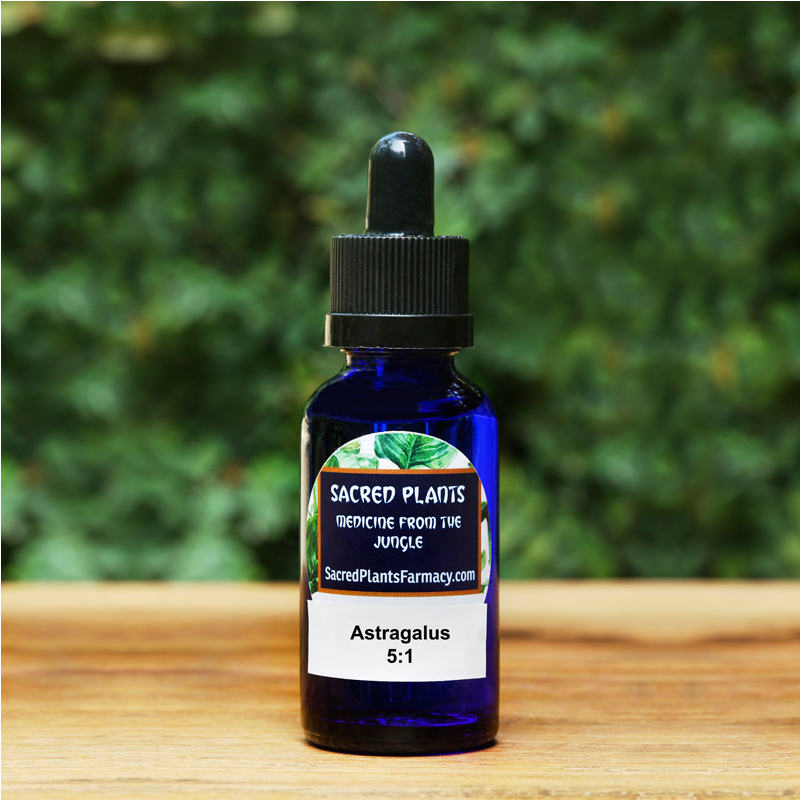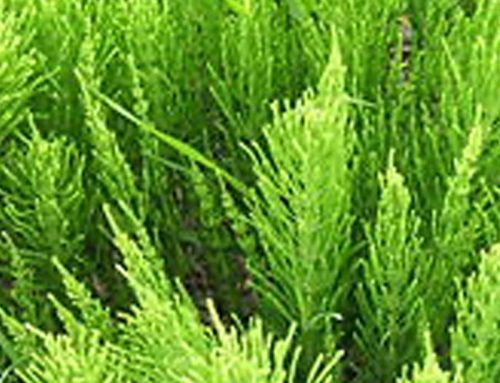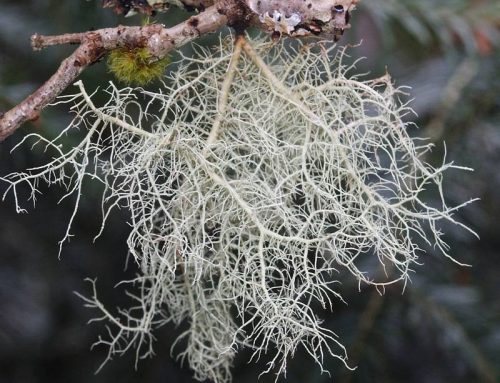Astragalus root is one of the most powerful immune-building plants on the planet. This adaptogen herb helps beat stress while fighting disease at the same time.
There is evidence to suggest astragalus can successfully:
- prevent collagen degradation
- help heal lung tissue affected by bronchopulmonary dysplasia in newborns
- inhibit herpes simplex virus 1
- prevent the replication of viruses like Coxsackie B-3, a virus that triggers illnesses ranging from mild stomach issues to major heart complications
- treat inflammation in allergic dermatitis (an allergic reaction of the skin)
- help treat hepatitis by inhibiting hepatitis B virus cells in the liver
- treat HIV by protecting t-helper cells fight the virus for much longer
- be used as a mild diuretic
Use 1/2 dropper full 2 to 3 times daily. Astragalus tincture can be added to beverage or taken directly into mouth.
What Is Astragalus?
Astragalus is a plant within the Leguminosae (beans or legumes) family, with a very long history as an immune system booster and disease fighter. Its roots are in Traditional Chinese Medicine, in which it’s been used as an adaptogen for thousands of years — meaning it helps the body fight off stress and disease. Today, astragalus medicinal healing and treatment uses span many different illnesses and diseases.
The perennial flowering plant, also called milkvetch root and Huang-qi, grows from 16 to 36 inches tall and is native to the north and eastern regions of China. It’s also been traced back to Mongolia and Korea.
Astragalus roots are harvested from 4-year-old plants and are the only part of the plant that’s used medicinally. Only two of the over 2,000 species of astragalus, astragalus membranaceus and astragalus mongholicus, are used medicinally.
Astragalus contains three components that allow the plant to have such a positive impact on human health: saponins, flavonoids and polysaccharides, which are all active compounds contained in certain plants, including some fruits and vegetables. Saponins are known for their ability to lower cholesterol, improve the immune system and prevent cancer. Flavonoids, also found in astragalus, provide health benefits through cell signaling. They show antioxidative qualities, control and scavenge of free radicals, and can help prevent heart disease, cancer and immunodeficiency viruses. Polysaccharides are known to have antimicrobial, antiviral and anti-inflammatory capabilities, among other health benefits.
In general, its greatest strength is preventing and protecting cells against cell death and other harmful elements, such as free radicals and oxidation.
According to continuing research, astragalus health benefits include:
- Acts as an Anti-Inflammatory
Inflammation is at the root of most diseases. From arthritis to heart disease, it’s often the culprit of the damage. Many studies show that thanks to its saponins and polysaccharides, astragalus can reduce inflammatory response in connection to a number of illnesses and conditions, from helping to heal wounds and lesions to reducing inflammation in diabetic kidney disease.
- Boosts the Immune System
In terms of reputation, boosting the immune system is astragalus’ claim to fame. It’s been used in this capacity for thousands of years. A study out of Beijing displayed its ability to control t-helper cells 1 and 2, essentially regulating the body’s immune responses.
- Slows or Prevents the Growth of Tumors
Many recent screenings have shown the success of astragalus saponins, flavonoids and polysaccharides in decreasing or eliminating tumors. In instances of chemo resistance treating liver cancer, astragalus has shown potential in reversing multidrug resistance and as an addition to conventional chemotherapy, according to a study published in the Journal of Pharmacy and Pharmacology.
- Protects the Cardiovascular System
The flavonoids present in astragalus are antioxidants that help prevent plaque buildup in arteries and narrowing of vessel walls by protecting the inner wall of the vessel. In addition, a 2014 study published in the Chinese Journal of Integrative Medicine suggests injection of astragalus, combined with conventional treatment for viral myocarditis (inflammation of the middle layer of the heart wall), makes treatment more successful in heart conditions.Other studies have shown its ability to reduce blood pressure and level of triglycerides. High levels of triglycerides put individuals at risk for many forms of heart disease, such as stroke, heart attack and hardening of artery wallsDuring a heart attack, heart muscle damage occurs when there is a lack of blood supply and oxygen. At that time, calcium overload creates secondary damage. Astragalus may prevent additional heart muscle damage by regulating calcium homeostasis in the heart.
- Regulates and Prevents Diabetes and Illnesses Related to Diabetes
Astragalus has been studied progressively as an antidiabetic. Studies show its ability to relieve insulin resistance and treat diabetes naturally. The herb’s collection of saponins, flavonoids and polysaccharides all are effective in treating and regulating type 1 and 2 diabetes. They’re able to increase insulin sensitivity, protect pancreatic beta cells (the cells in the pancreas that produce and release insulin) and also act as anti-inflammatories in areas related to diabetes symptoms.Kidney disease in diabetics is also a common problem, and astragalus has been used to treat kidney illness for many years. More recent studies in humans and animals have shown astragalus can slow the progress of kidney problems in diabetics and protect the renal system
- Contains Antioxidative and Anti-Aging Capabilities
Oxidation due to free radical damage is the main component in disease and aging, and many elements found in astragalus fight free radical damage and prevent of oxidative stress. The herb’s polysaccharides have positive effects on the immune system and improvement of the function of the brain, both of which could lengthen life span.
- Aids in Wound Healing and Minimizes Scarring
Because of its anti-inflammatory qualities, astragalus has a long history of treating wounds. Radix astragali, another name for the dried root of astragalus, has been used in Traditional Chinese Medicine for the repair and regeneration of injured organs and tissues.In a 2012 study by the Institute of Pharmaceutics at Zhejiang University, wounds treated with astragaloside IV (the active ingredient in dried astragalus root) showed recovery rates increase two- to threefold over 48–96 hours. It was concluded that astragalus is a promising natural product for anti-scarring and healing in wounds.
- Alleviates Symptoms of Chemotherapy
Astragalus has been shown to help patients receiving chemotherapy to recover more quickly and extend their life spans. In cases of severe chemotherapy symptoms like nausea, vomiting, diarrhea and bone marrow suppression, astragalus has been given intravenously and in combination with other Chinese herbal mixtures. Early research suggests its ability to reduce these symptoms and increase the efficacy of the chemotherapy treatments.
- Treats Colds and Flu
Because of astragalus’ antiviral capabilities, it has long been used to treat common colds and the flu. It’s commonly combined with other herbs like ginseng, angelica and licorice. As with many other natural cold remedies, it seems to work better when used when healthy individuals use the supplement regularly in order to prevent the illness before it happens. A regimen of astragalus before the colder months of winter may help to prevent or decrease the number of colds and upper respiratory illnesses individuals will have throughout the season. - Provides Supplemental Therapy for Chronic Asthma
Astragalus has been used to treat chronic asthma and determined to be a successful supplemental therapy and asthma natural remedy. After being treated, hypersensitivity in airways decreased substantially and mucus production and inflammation were reduced in studies. By preventing or reducing asthma attacks, individuals could be relieved of chronic asthma issues.
How to Use Astragalus
There are a number of ways to use astragalus root medicinally. Astragalus is currently used as an addition to conventional treatments and should not be used as a replacement for medications unless suggested by a doctor.
- Tincture (liquid alcohol extract) is our favored method.
- Capsules and tablets
- Injectable forms for use in hospital or clinical settings in Asian countries
- Topically for the skin
- Dried and used in tea
There is not a standardized dosage for astragalus, but you can work with a doctor or specialist to determine how much you should take and how often. There are differences in doses depending on age, health and medical history.
Possible Side Effects & Cautions of Astragalus
Astragalus is generally safe to use with no serious side effects. There are possible interactions with other herbal supplements, so start with smaller doses to prevent side effects.
Women who are pregnant and who are nursing should not use astragalus.
People with autoimmune diseases should speak with their doctors before starting astragalus because of its ability to stimulate the immune system. Individuals with diseases like multiple sclerosis, rheumatoid arthritis and other immune system conditions could be especially sensitive to astragalus.
Sacred Plants Farmacy suggest only using a specific adaptogen for a few months and then move on to another, cycling them to receive maximum benefits and wellbeing.






